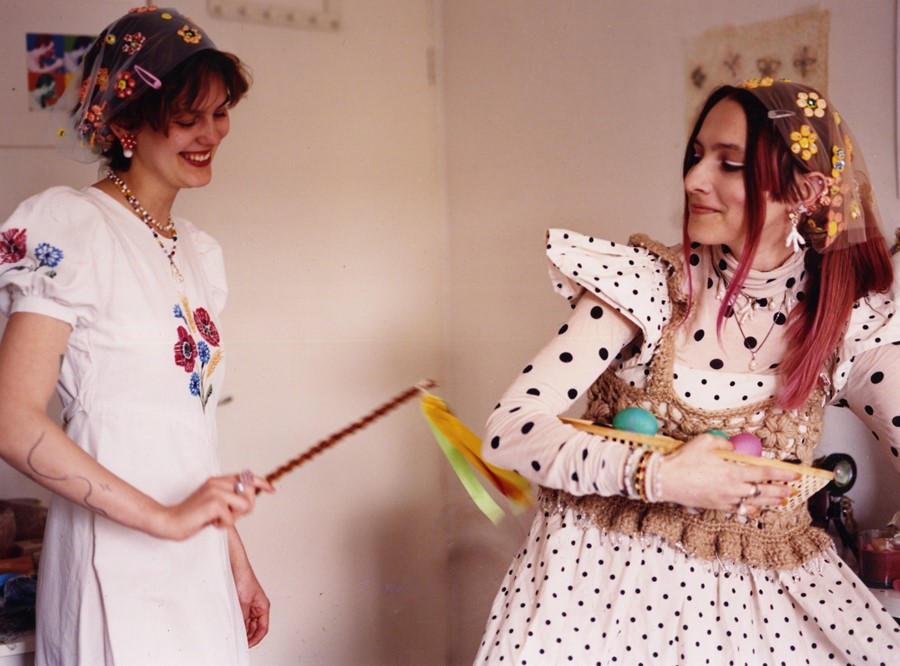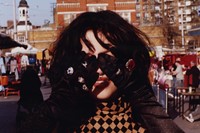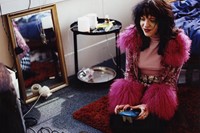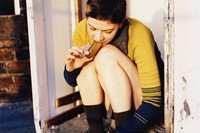Tired of the xenophobia that Central and Eastern European youths face in the UK, Johana Kasalicka set out to make a positive portrait of her community – and a home away from home
Framed by two pieces of drying laundry, a young woman wearing a cap squats on a rooftop, staring defiantly through the frame. Her hoodie reads ‘I ♥ London’ but her eyes seem to challenge this sentiment. This is how Johana Kasalicka opens her documentary series, My Favorite Slavs in London, exploring Central and Eastern European youth culture in the UK. “It’s kind of ironic that she has this sweatshirt on,” says Kasalicka. She explains that, at the time of shooting, her friend in the photograph had shared her desire to move away from London due to her feelings of disappointment after Brexit, and a sense that her opportunities here were more limited than expected.
This is Kasalicka’s first foray into documentary photography. Taking a sensitive and intimate look into her friend’s lives, she also brings elements of her fashion photography background into the work and process. “The project started as an exploration of my Central Eastern European identity. Back home in the Czech Republic, I never thought of myself as an Eastern European – I’d rather think about myself as European or Czech. When I moved to London four years ago I discovered that I’m labeled as Eastern European, which has certain negative connotations and stereotypes,” Kasalicka explains.
While Kasalicka had an inkling that Central and Eastern Europeans in the UK face prejudice, it was only when she began researching the topic and interviewing her friends that she realised how common these experiences are. “[Central and Eastern Europeans in the UK] are often seen as cheap labour. They often don’t have equal work opportunities and their qualifications from their home countries are not really recognised here,” she explains. “Eastern European countries also don’t have as much cultural capital. So let’s say, in the Czech Republic, we’re famous for cheap beer and hockey and football, in comparison to countries like France or Italy that are instead famous for their high culture. I think that can also reflect how Eastern Europeans are perceived.”
Instead of focusing on the barriers and the – at time explicit – xenophobia that her friends have faced in the UK, Kasalicka wanted to create a positive representation of her community. Throughout the series of photographs, the hidden symbolism and markers of Eastern European culture may not immediately jump out to everyone, but this doesn’t bother Kasalicka too much. She explains that her aim was to reach others in her community through subtle imagery: “[It’s these] little things that make you feel like, ‘Oh this is familiar, this is something that I know,’ and maybe it makes you feel like you belong a little bit more.”
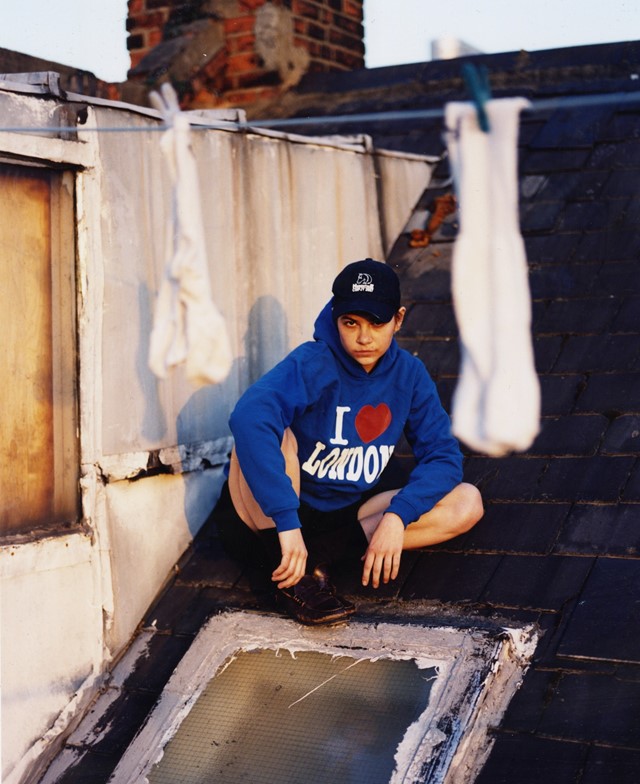
Weaved throughout the images, jars of pickled cucumbers, colourfully dyed eggs and neatly lined up collections of pebbles serve as a background to friendships made in the absence of family and home. “Moving to a different country kind of forces you to create this new family of friends that actually provide the function of a family. That’s something I wanted to capture, I wanted to capture the connections,” says Kasalicka.
The image of a finger pointing out the Czech Republic on a small plastic globe will feel instantly familiar for many Eastern Europeans in the UK, who are so often longing for their diverse countries and experiences to be known, recognised, and understood. For Kasalicka, it was important to celebrate Central and Eastern European heritage, while acknowledging the diversity of the different countries in the region, with their different histories, languages and complex identities. Most of all, Kasalicka wanted to show her peers that “[they] are not alone, and that they can talk about [their similar experiences] with each other and support each other.”
